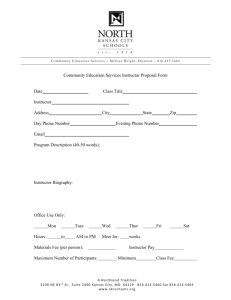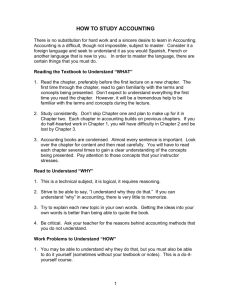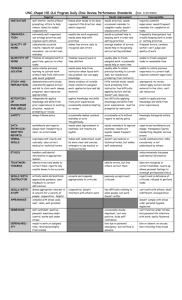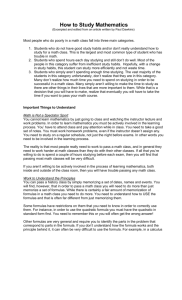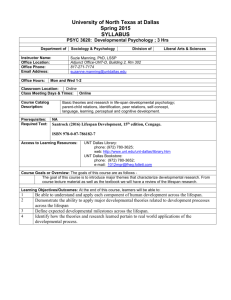TAKING MATHEMATICS TESTS
advertisement
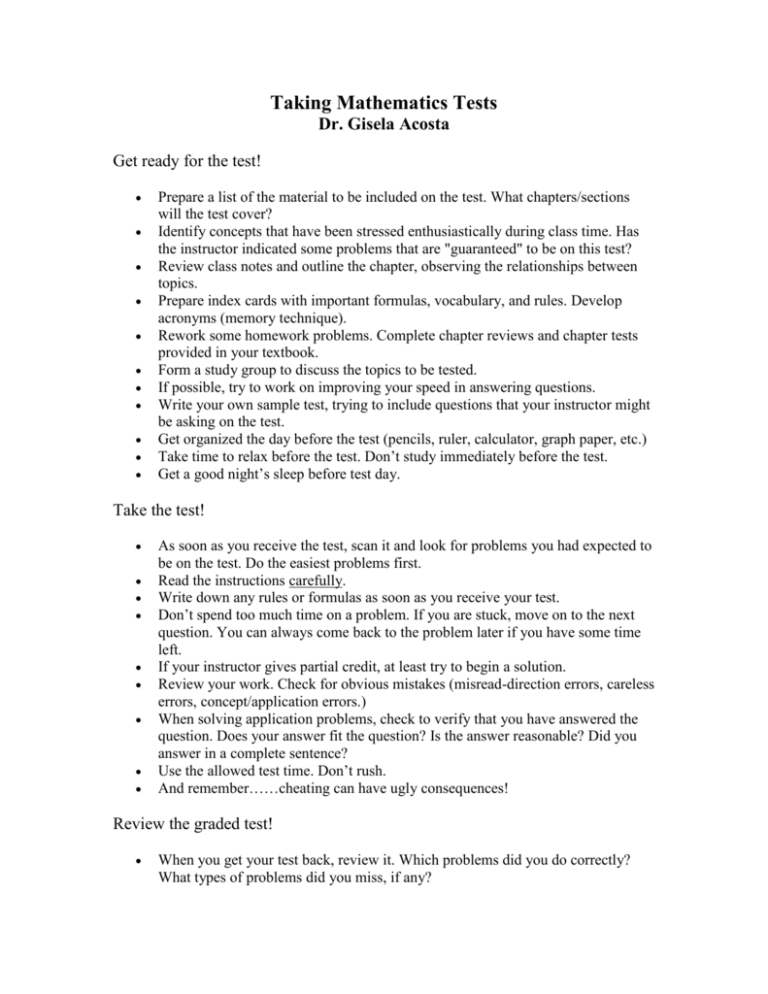
Taking Mathematics Tests Dr. Gisela Acosta Get ready for the test! Prepare a list of the material to be included on the test. What chapters/sections will the test cover? Identify concepts that have been stressed enthusiastically during class time. Has the instructor indicated some problems that are "guaranteed" to be on this test? Review class notes and outline the chapter, observing the relationships between topics. Prepare index cards with important formulas, vocabulary, and rules. Develop acronyms (memory technique). Rework some homework problems. Complete chapter reviews and chapter tests provided in your textbook. Form a study group to discuss the topics to be tested. If possible, try to work on improving your speed in answering questions. Write your own sample test, trying to include questions that your instructor might be asking on the test. Get organized the day before the test (pencils, ruler, calculator, graph paper, etc.) Take time to relax before the test. Don’t study immediately before the test. Get a good night’s sleep before test day. Take the test! As soon as you receive the test, scan it and look for problems you had expected to be on the test. Do the easiest problems first. Read the instructions carefully. Write down any rules or formulas as soon as you receive your test. Don’t spend too much time on a problem. If you are stuck, move on to the next question. You can always come back to the problem later if you have some time left. If your instructor gives partial credit, at least try to begin a solution. Review your work. Check for obvious mistakes (misread-direction errors, careless errors, concept/application errors.) When solving application problems, check to verify that you have answered the question. Does your answer fit the question? Is the answer reasonable? Did you answer in a complete sentence? Use the allowed test time. Don’t rush. And remember……cheating can have ugly consequences! Review the graded test! When you get your test back, review it. Which problems did you do correctly? What types of problems did you miss, if any? Write down the items on which you made mistakes (if any) and rework similar problems. Check the grading, to verify that your instructor did not make any errors counting up point totals. Visit your instructor during office hours and ask to review your work. It is a good practice to make an appointment, so that you can be sure that he/she is not busy attending other students when you visit your instructor’s office. Sources: * Intermediate Algebra, Tussy & Gustafson, 2000. * Your Guide to College Success, Santrock & Halonen, 1999. * Winning at Math: Your Guide to Learning Mathematics Through Successful Study Skills, Nolting, 1997.







